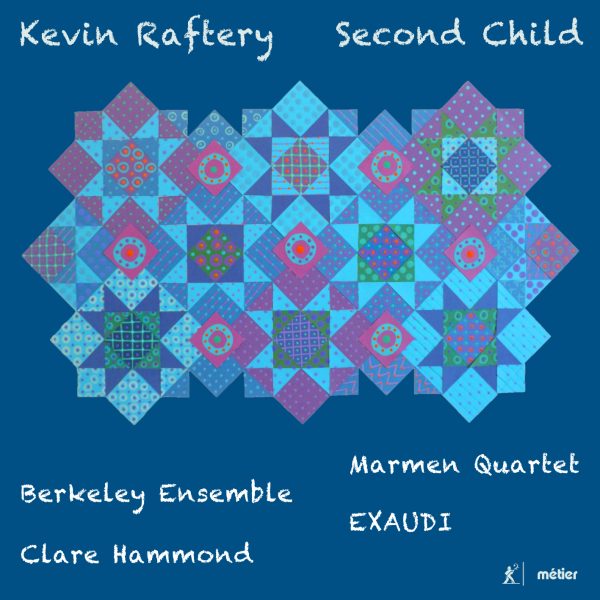Infodad
Born in 1951, Kevin Raftery is one of many contemporary composers for whom the violin continues to hold considerable interest. But as a new Métier CD of Raftery’s works shows, those interests extend in many directions beyond the violin and may include it as just one element of expressiveness to be explored. Thus, Raftery’s String Quartet No. 2, “Serioso,” although written for the traditional quartet grouping, frequently sets individual instruments (including both violins) against each other, and uses techniques often employed in the past, such as pizzicato, as significant building blocks of material rather than as special effects.
Musica Fermata is also strings-focused – it is for two violins – but its concern is mainly with long-held notes rather than with the more pointillist approach of the “Serioso” quartet. The remaining works on this disc showcase other aspects of Raftery’s interests. Cook from Frozen, for solo piano, uses some of the “holding pattern” approach found in Musica Fermata but contrasts it with abrupt interjections of various kinds.
Dimitte nobis and Three English Poems are choral works: the first shows Raftery’s ability to adapt old-fashioned churchlike sounds to an age of dissonance and atonality; the second, surprisingly for anyone anticipating more-folklike settings emphasizing verbal clarity, has a sound very similar to that of Dimitte nobis in the first and third poems (“Ribblesdale” and “From Prison”), and only offers a more-clarified vocal approach in the second (“Unhaunted Desert”).
This multifaceted (***) CD concludes with Elegy upon Elegy, an ensemble piece in which the chamber-size Berkeley Ensemble balances string and woodwind components skillfully, although the music itself is less than convincing: it is well-designed in terms of usage of the various instruments, but rather pointless in its meandering structure and lack of apparent desire to communicate anything in particular. This is one of those CDs that will appeal mostly to listeners who already have a strong interest in how today’s composers think about and rethink various instruments (including the voice) and traditional forms, and would like to hear one particular creator’s approach to multiple kinds of communication.
@divineartrecordingsgroup
A First Inversion Company
Registered Office:
176-178 Pontefract Road, Cudworth, Barnsley S72 8BE
+44 1226 596703
Fort Worth, TX 76110
+1.682.233.4978












